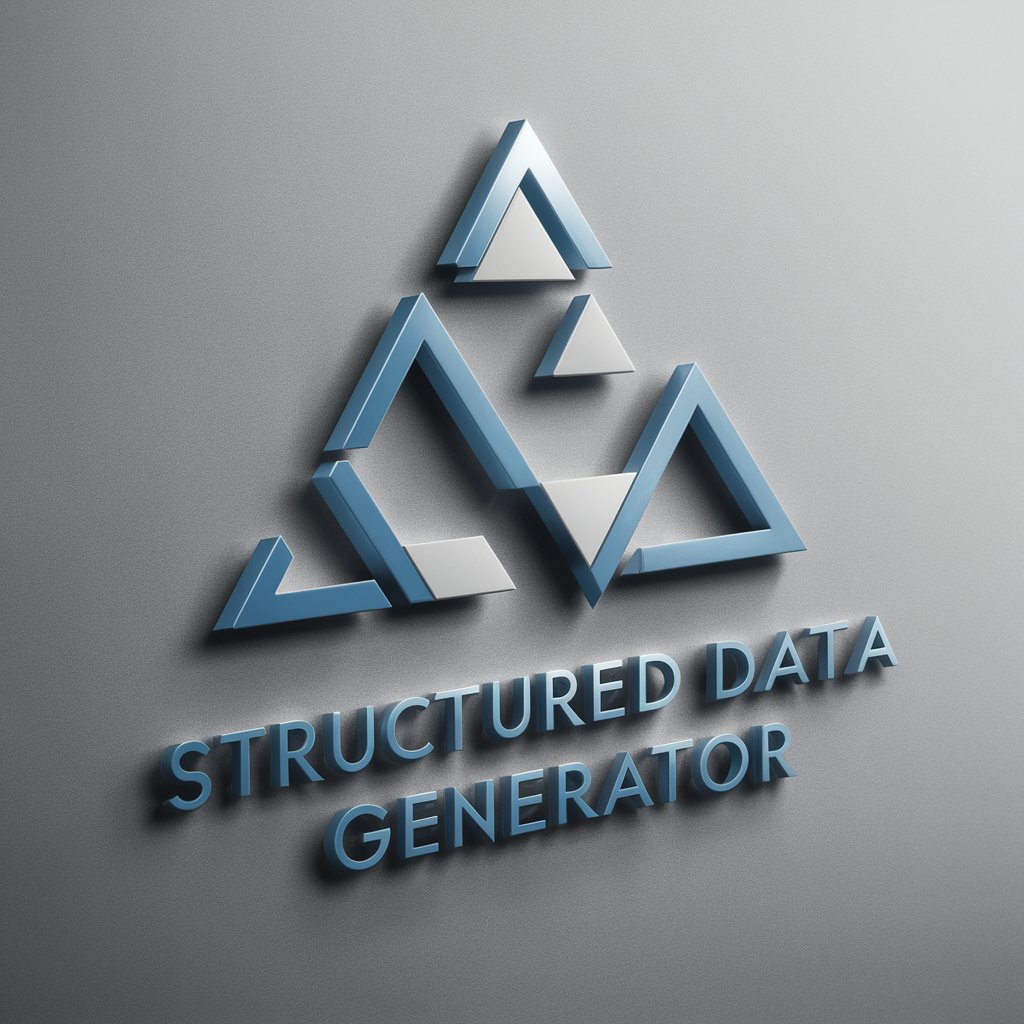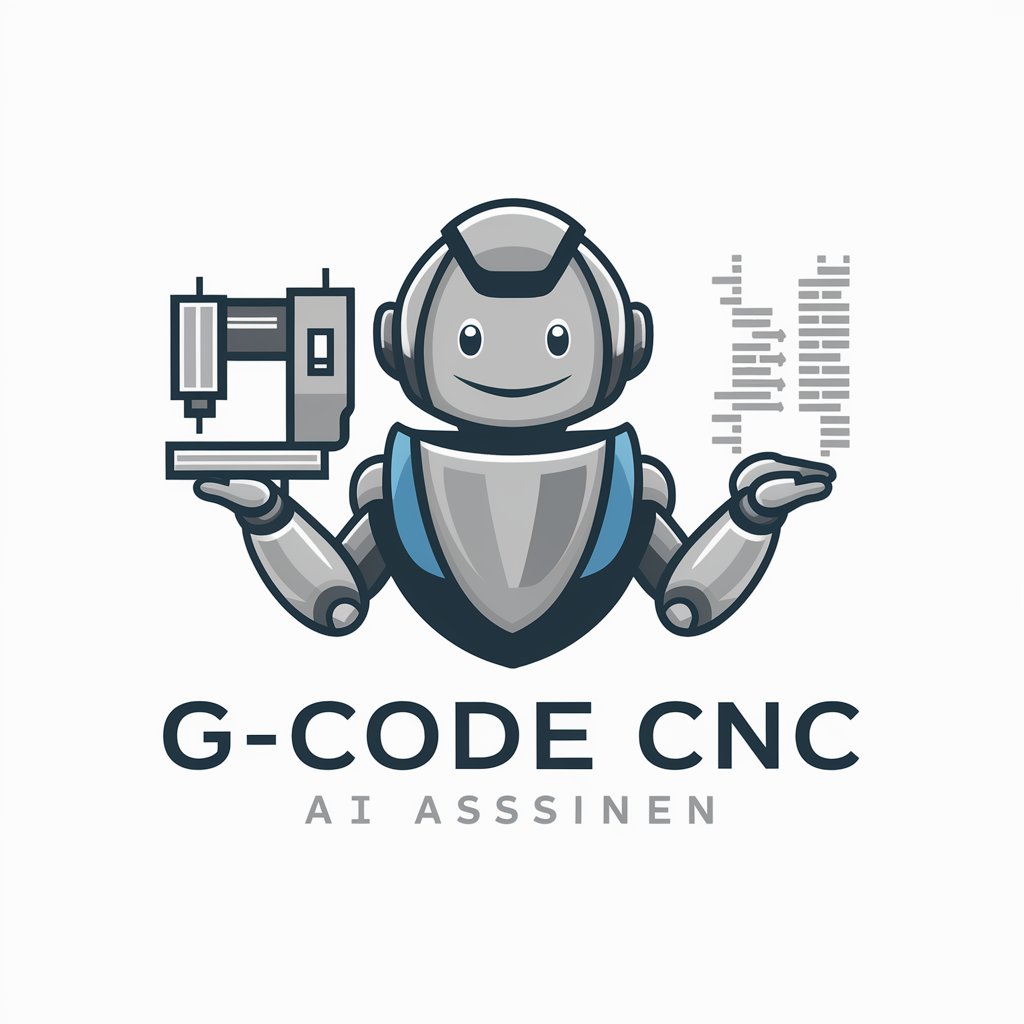
Structured Data Generator - AI-Powered Structuring

Hello! Let's create some structured data.
Transform Content into Structured Data
Analyze the web content of a given URL to identify key elements for structured data.
Generate JSON-LD structured data for a webpage based on its content and Google’s directives.
Extract main keywords and a representative summary from a webpage for structured data generation.
Determine the appropriate Schema.org category for web content and create corresponding structured data.
Get Embed Code
Introduction to Structured Data Generator
Structured Data Generator is a specialized GPT designed by Max Del Rosso for analyzing web content and automatically generating structured data in JSON-LD format, following Google's directives and Schema.org guidelines. Its primary purpose is to enhance the visibility and understanding of web content by search engines, thereby improving SEO performance and user discovery. For example, when given a URL, it examines the content to identify the main category (e.g., article, product, event) based on Schema.org, determines main keywords, user intent, and extracts a representative summary. This analysis culminates in the generation of structured data that accurately represents the content, including essential details such as title, author, publication date, and main image URL. Powered by ChatGPT-4o。

Main Functions of Structured Data Generator
Web Content Analysis
Example
Analyzing a blog post to identify its main themes, keywords, and overall intent.
Scenario
A digital marketing specialist uses the tool to optimize a series of articles for better search engine indexing and user engagement.
Generation of JSON-LD Structured Data
Example
Creating JSON-LD code for a product page that includes title, price, availability, and reviews.
Scenario
An e-commerce website manager applies the tool to product listings to enhance their visibility in search engine results, facilitating richer search features like product snippets.
Identification of Schema.org Category
Example
Determining whether a given page is best categorized as an Article, Event, or Product.
Scenario
A content manager uses the tool to tag a variety of content types on their website, ensuring each piece is accurately represented in search engines.
Ideal Users of Structured Data Generator Services
Digital Marketing Specialists
Professionals looking to enhance the SEO of website content through structured data, thereby improving visibility and user engagement.
E-commerce Managers
Online retail professionals aiming to improve product visibility and features in search results, increasing click-through rates and conversions.
Content Managers and Webmasters
Individuals responsible for the maintenance and optimization of website content, seeking to ensure accurate indexing and representation in search engine results.

How to Use Structured Data Generator
Start with a Free Trial
Begin by exploring the capabilities of Structured Data Generator through a free trial at yeschat.ai, offering full access without the need for a ChatGPT Plus subscription or even logging in.
Identify Your Needs
Determine the specific type of content (e.g., articles, products, events) you want to analyze and generate structured data for, to ensure the tool is used effectively.
Prepare Your Content
Gather the URLs or text content you wish to analyze. Ensure that the content is clear and well-structured to facilitate accurate data generation.
Generate Structured Data
Use the Structured Data Generator tool to input your content. The tool will analyze the content and automatically generate the appropriate JSON-LD structured data.
Implement and Test
Incorporate the generated structured data into your web pages. Use tools like Google's Structured Data Testing Tool to verify that it's correctly implemented and recognized.
Try other advanced and practical GPTs
IT Advisor
Empowering decisions with AI-powered IT guidance

Interview Guide Assistant
Tailor Your Interviews with AI

Strategic Sales Visionary
Empowering Sales with AI Insights

🌟 Crafty Multiverse 🎨 Multilanguage🔨
Empower Your Creativity with AI-Powered Crafting

Global Analytics Expert
Empowering decisions with AI-driven insights

Strategic Response AI
Empowering decisions with AI-driven insights

Profesor de Moda
AI-Powered Fashion Insight

Social Media Guru
Elevate Your Social Media Game with AI

G-CODE
Craft Precision with AI-powered G-CODE Tool

Code Wizard
Elevate Your Code with AI-Powered Insights

Code Sync AI
Streamlining Code Management with AI

Debug Duck
Quack your way to coding success with AI-powered Debug Duck.

Structured Data Generator Q&A
What is Structured Data Generator?
Structured Data Generator is an AI-powered tool designed to analyze web content and automatically generate structured data in JSON-LD format, following Google's guidelines and Schema.org standards.
Why is structured data important for SEO?
Structured data helps search engines understand the content of a webpage, making it easier to index and display in search results, potentially enhancing visibility and click-through rates.
Can this tool analyze any type of content?
While it's versatile, the tool works best with well-defined content types such as articles, products, and events. Content should be clear and well-structured for optimal results.
How does the tool handle different languages?
The tool is primarily designed for content in English. Performance with other languages may vary and depends on the clarity and structure of the content provided.
Is technical expertise required to use this tool?
No, the tool is designed to be user-friendly. Basic knowledge of web content management is helpful, but the tool guides users through the process of generating and implementing structured data.